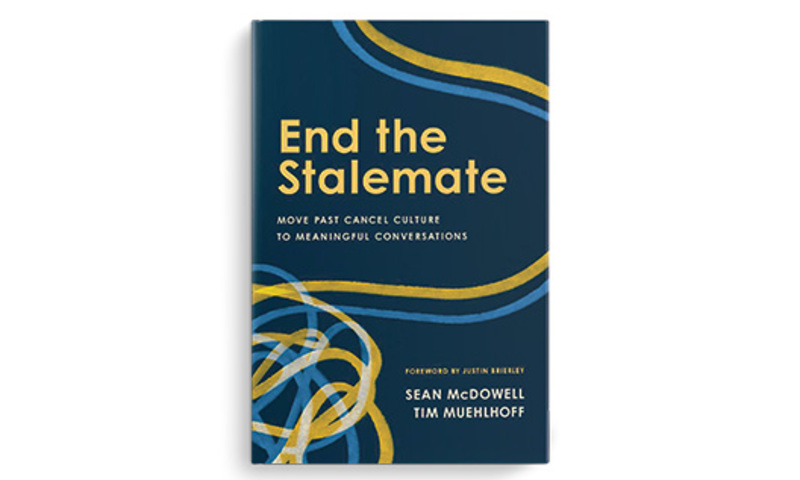Differences of opinion have always been part of life. Spouses, family members, coworkers, neighbors, and even church members have always had spirited conversations about politics, theology, social issues, and even sports. When college students were asked to keep a journal of how many arguments they’d had with friends in a week, the average was seven. A leading expert in family communication recorded dinnertime conversations of 52 families and identified an average of 3.3 occurrences of disagreements or arguments during every meal. Some research finds that competition, differences of opinion, and even conflict can enhance a relationship.
There are two interesting facts about the studies you’ve just read about. First, while the individuals in these studies had regular disagreements, they continued to talk. They may not have liked what a friend or coworker said, but they didn’t sever ties. Second, the studies were all done between 1987 and 2011. How times have changed.
In today’s argument culture, we handle disagreements differently. What’s happened? Why have we now decided to cancel each other or separate rather than talk? It’s not that the past was some idyllic time where no relationships were severed, but it seems there was a different attitude. Could it be that what changed is we are angrier? According to Harvard researcher Arthur Brooks, “We don’t have an anger problem in American politics. We have a contempt problem.” Brooks has spent years researching and interviewing experts trying to answer the what happened question. His answer is that recently contempt has entered our communication, which he describes as anger mixed with disgust. What’s the difference between anger and contempt? As the older studies indicate, we can be angry or disagree with a spouse, coworker, or church member but still want to protect the relationship. Families may not see eye to eye at the dinner table, but they still eat dinner together. Contempt is saying not only “I am angry” but also “I no longer care if the relationship ends. I’ll state my position and then shake the dust off my feet as I leave.”
It’s important to note that this doesn’t mean we are no longer talking. Ironically, we are talking more than ever. In fact, researchers have coined a term — talkaholism — to describe our propensity for extreme overtalking. The problem is, we are only talking to people with whom we already agree, our insulated in-group. Those outside the group have been mocked online or excluded altogether. What if you don’t want to end the relationship? The person with whom you disagree is a family member or boss, and you can’t simply end it. Yes, you want to share your views, but you don’t want to ruin the relationship. And you don’t want to isolate from those with differing opinions; you just want to end the uneasy stalemate that keeps you fearful or silent. What now?
Three areas provide hope. First, you are not alone in wanting to both speak your mind and preserve the relationship. Scholars have identified an exhausted majority who are tired of canceling or shouting down each other. They want to find productive ways to engage that don’t ignore differences but rather seek to address them with charity. Second, communication experts provide invaluable insight into what derails our conversations. They note that we mistakenly think of communication as existing on merely the content level (our convictions, beliefs, and opinions). For sure, what we believe is an important part of who we are and what we value. However, communication also exists on the relational level (amount of respect, compassion, and empathy between people). Here’s the key insight: if you violate the relational level, then people don’t care about your content.
Last, the balance between the content and relational level was articulated long before being noticed by communication gurus. The apostle Paul asserts we should always speak truth (content) with love (relational) to those inside and outside the church (see Ephesians 4:15). Peter commands all of us to be ready to give an explanation of what we believe (content) but to root it in the relational, which will be evidenced by a “gentle and respectful” answer (1 Peter 3:15–16).
Today’s argument culture provides Christian communicators an opportunity to model how to hold firm to convictions while still engaging others with compassion, empathy, and perspective-taking. We place our ultimate confidence in a wisdom from above that is “peace loving, gentle at all times, and willing to yield to others” (James 3:17). With the Spirit to guide us and with communication strategies rooted in the Scriptures, let’s adopt Paul’s confidence that despite extreme differences and the desire to pull away from each other, God is able “through his mighty power at work within us, to accomplish infinitely more than we might ask or think” (Ephesians 3:20).
Adapted from End the Stalemate: Move Past Cancel Culture to Meaningful Conversations by Sean McDowell (associate professor of Christian apologetics) and Tim Muehlhoff. Copyright ©2024. Used by permission of Tyndale House Publishers, a Division of Tyndale House Ministries. All rights reserved.
 Biola University
Biola University

